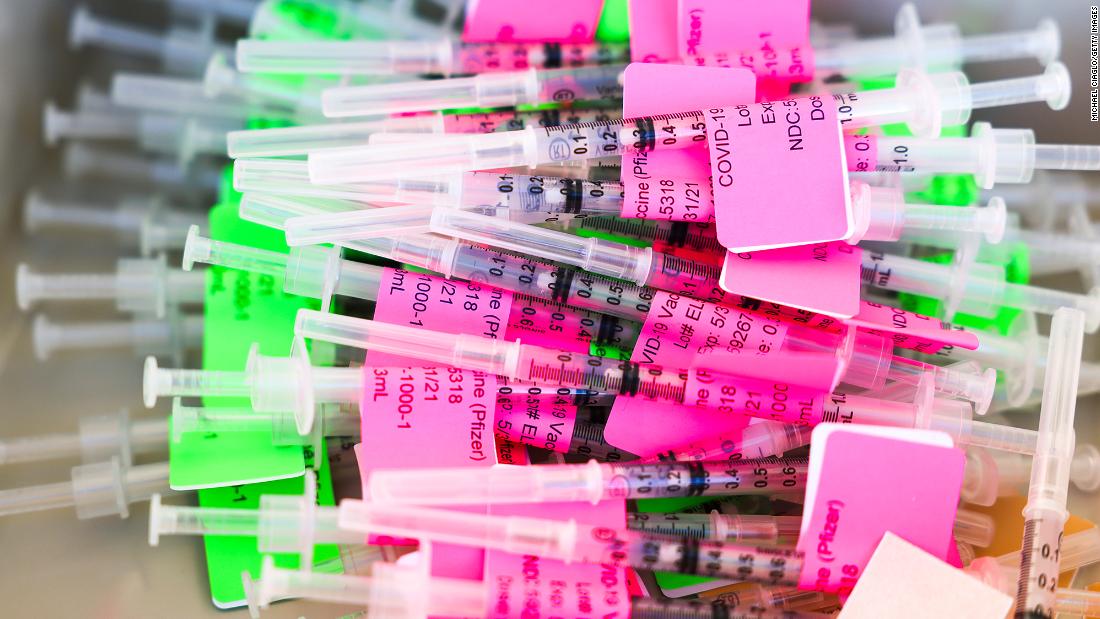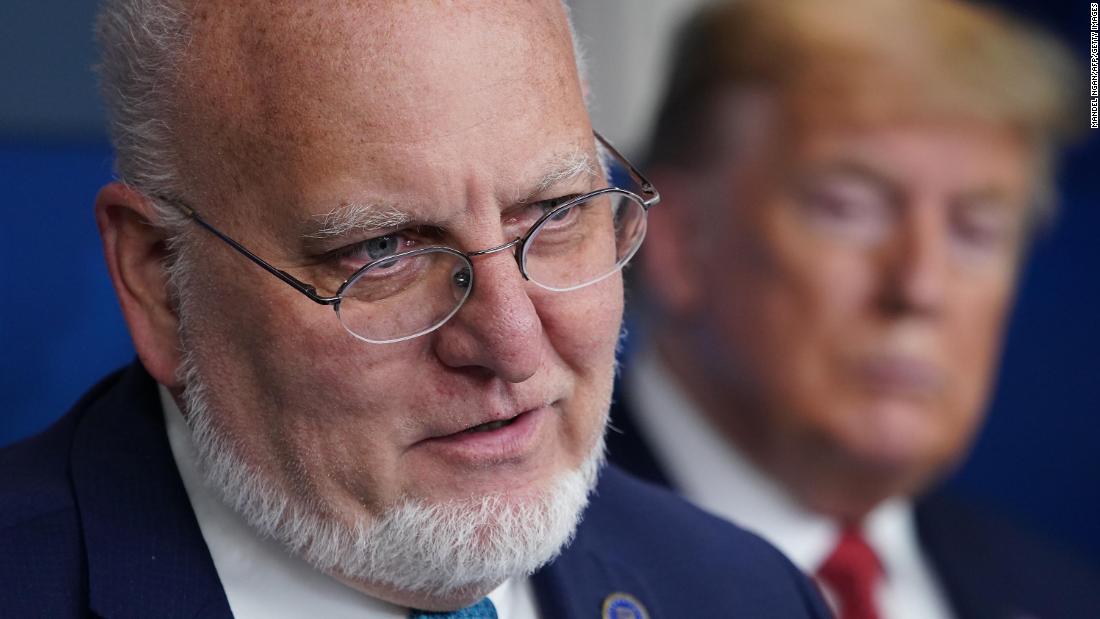| Like this newsletter? Tell your friends to sign up here. And follow all our latest updates.
By Tara John, CNN Tuesday, March 30
Much of America's recent progress against Covid-19 is being erased as infections, deaths and hospitalizations multiply nationwide.
On Monday US President Joe Biden implored state and local officials to reinstate mask mandates, after Dr. Rochelle Walensky, the director of the Centers for Disease Control and Prevention (CDC), shared her feelings of "impending doom" at a White House Covid-19 briefing.
After a crippling winter surge, the United States saw steep declines in Covid-19 numbers before hitting a plateau at the end of February. But state and local leaders across the country prematurely eased restrictions, all while the B.1.1.7 variant -- a more contagious and potentially more deadly strain -- was spreading fast. Meanwhile, spring break revelers packed popular beach destinations and air travel surged, helping the US slide backwards, Christina Maxouris and Holly Yan write.
The pandemic's trajectory in the US now looks worryingly like the situation a few weeks ago in some European countries that are now struggling with third waves, Walensky said. "I know that travel is up, and I just worry that we will see the surges that we saw over the summer and over the winter again," she added. The US averaged 63,239 daily cases over the previous seven days to Monday, up 16% since last week.
The good news is that all three vaccines being distributed in the US appear to work well against the B.1.1.7 strain, Stephen Collinson writes. But even a daily average of more than 2.5 million shots in arms is not enough to stem rising cases.
With only 15.8% of the US population fully vaccinated so far -- and anti-vaxxers and vaccine hesitancy preventing America from returning to normal faster -- it's time for a reality check, Collinson argues.
THE LATEST NUMBERS Global Cases 127,720,218
Global Deaths 2,793,564 US Cases 30,332,164
US Deaths 550,071
 Source: Johns Hopkins University YOU ASKED. WE ANSWERED. Q Is the pandemic causing me to have nightmares? A Are you waking up more often these days from an unpleasant dream, even a scary nightmare? Blame a combination of pandemic-fueled sleep changes, laced with a year's worth of stress, sleep experts say.
The phenomenon started about a year ago, not long after lockdowns began around the world. Frontline workers were hard hit -- a June 2020 study of 100 Chinese nurses found 45% experienced nightmares, along with varying degrees of anxiety and depression.
But nightmares have continued as quarantines and lockdowns stretched on, experts say. One reason: an increase in "night owls." Saved from a commute or the need for a more organized schedule, people began going to bed later and later as the pandemic wore on, experts say. That means they then sleep in later than normal, setting the stage for vibrant, colorful -- even scary -- dreams. Send your questions here. Are you a health care worker fighting Covid-19? Message us on WhatsApp about the challenges you're facing: +1 347-322-0415. WHAT'S IMPORTANT TODAY Coronavirus likely came from an animal, not a lab, WHO draft report finds
Covid-19 probably came to humans through an animal, and likely started spreading no more than a month or two before it was noticed in December 2019, a World Health Organization (WHO) draft report has found. The least likely source for the outbreak? A laboratory leak, the WHO's joint international team concluded.
WHO is scheduled to release the final report on its investigation into the origins of the virus on Tuesday, but a draft version of the report obtained by CNN shows there's still no smoking gun, and no evidence suggesting the virus was spreading any earlier than the very end of 2019, Maggie Fox and Sandhi Sidhu report.
It gives four possible sources for the virus, concluding that the most likely scenario is that humans were infected via an intermediate animal host -- possibly a wild animal captured and then raised on a farm. But the investigation has not found which other animal was infected by a bat -- considered the most likely original source of the virus -- before transmitting it to a human. "The possible intermediate host of SARS-CoV-2 remains elusive," it reads. World leaders call for international pandemic treaty
Dozens of world leaders have called for a new treaty to help the globe better prepare for pandemics. Writing in a joint article, more than 20 national leaders and WHO chief Dr. Tedros Adhanom Ghebreyesus call the Covid-19 outbreak the biggest challenge to the global community since World War II.
They warn that it is a question of "not if, but when" the next health crisis strikes and argue that a settlement is needed, like the one formed after the end of the war in 1945, "to predict, prevent, detect, assess and effectively respond to pandemics in a highly co-ordinated fashion."
"At a time when Covid-19 has exploited our weaknesses and divisions, we must seize this opportunity and come together as a global community for peaceful co-operation that extends beyond this crisis," the signatories, including German Chancellor Angela Merkel, South African President Cyril Ramaphosa and UK Prime Minister Boris Johnson, added.
The call comes as tensions escalate over access to vaccines among some of the authors. The European Union and the UK are in a long-running war of words over drugmaker AstraZeneca's contracts to supply its shot, while some EU member states have repeatedly expressed their frustration with the bloc's stuttering vaccine rollout. CDC study finds Pfizer and Moderna vaccines are 90% effective in real-world conditions after two doses
Under real-world conditions, the Pfizer and Moderna Covid-19 vaccines provide highly effective protection, according to a CDC report released Monday, Jen Christensen reports. At full vaccination, the shots were 90% effective at preventing infections, including those with no symptoms. At least 14 days after the first dose, but before the second dose, they were 80% protective, the report found.
Meanwhile, pharmaceutical giant Johnson & Johnson said Monday it would supply 200 million Covid-19 vaccines to Europe, including Norway and Iceland, in the second half of April. On the same day, British pharmaceutical company GlaxoSmithKline announced it has agreed to support the manufacture of up to 60 million doses of Novavax's vaccine candidate for use in the UK. ON OUR RADAR  The Philippine National Police has deployed thousands of officers to help enforce the lockdown rules that have been imposed on Manila and surrounding provinces. Credit: Getty Images
FROM TODAY'S PODCAST "I finally had a moment in life where I said, you know, 'Enough's enough. If you want to fire me, fire me." — Dr. Robert Redfield, former director of the CDC.
Redfield, who led the CDC under the Trump administration, opens up to CNN's Chief Medical Correspondent Dr. Sanjay Gupta about some of the challenges the agency has faced over the past year. LISTEN NOW. MORE FROM CNN And just like that, all the coronavirus vaccine tiers are gone. Most states are opening Covid-19 vaccinations to everyone over 16. As scientists like former CDC director Robert Redfield provide more details on how the Trump administration tried to change some of the CDC's reports on the pandemic, Americans must take steps to ensure that intervention doesn't happen again, writes Dorit Reiss. "Political intervention in the evidentiary basis for decisions -- essentially, rewriting the data to fit the politics -- only harms." Unsubscribe | All CNN Newsletters
Want to easily manage your newsletter subscriptions? Create your account.
Access CNN's Coronavirus Resource.
® © 2021 Cable News Network, Inc. A WarnerMedia Company. All Rights Reserved.
One CNN Center Atlanta, GA 30303 |
SUBSCRIBE TO OUR NEWSLETTER
Our Youtube Channel
Top Articles
-
Baird and NWSL general counsel Lisa Levine were ousted Friday in the wake of a rep...
-
A CDC order that went into effect requiring a negative COVID test before flying to...
eseries.in - All Rights Reserved 2023-2025






